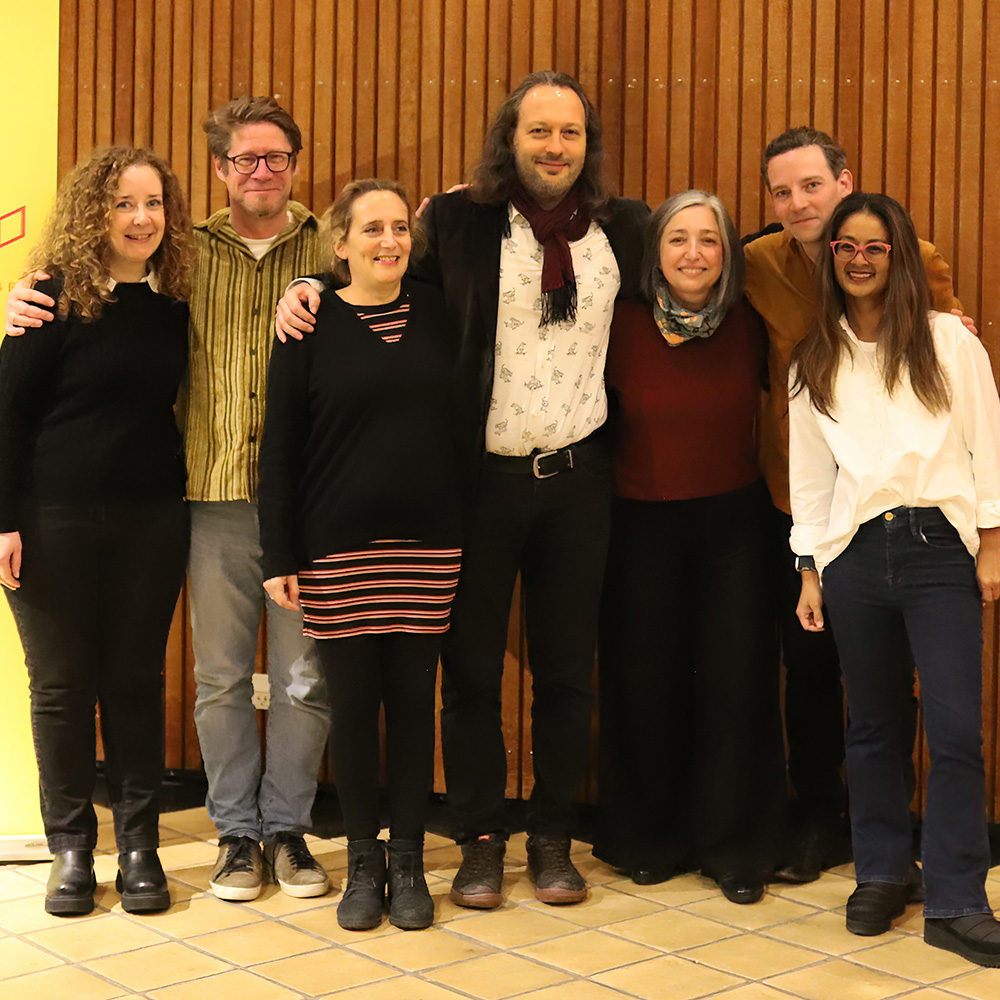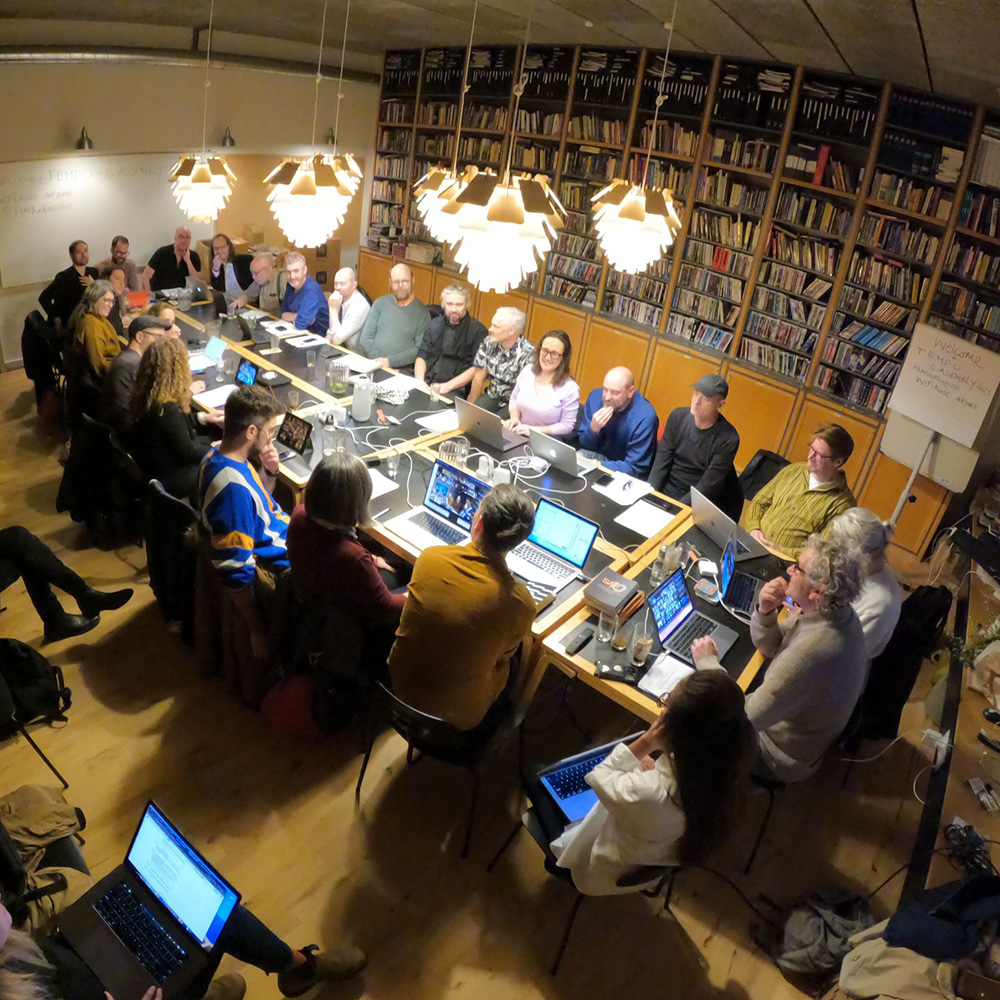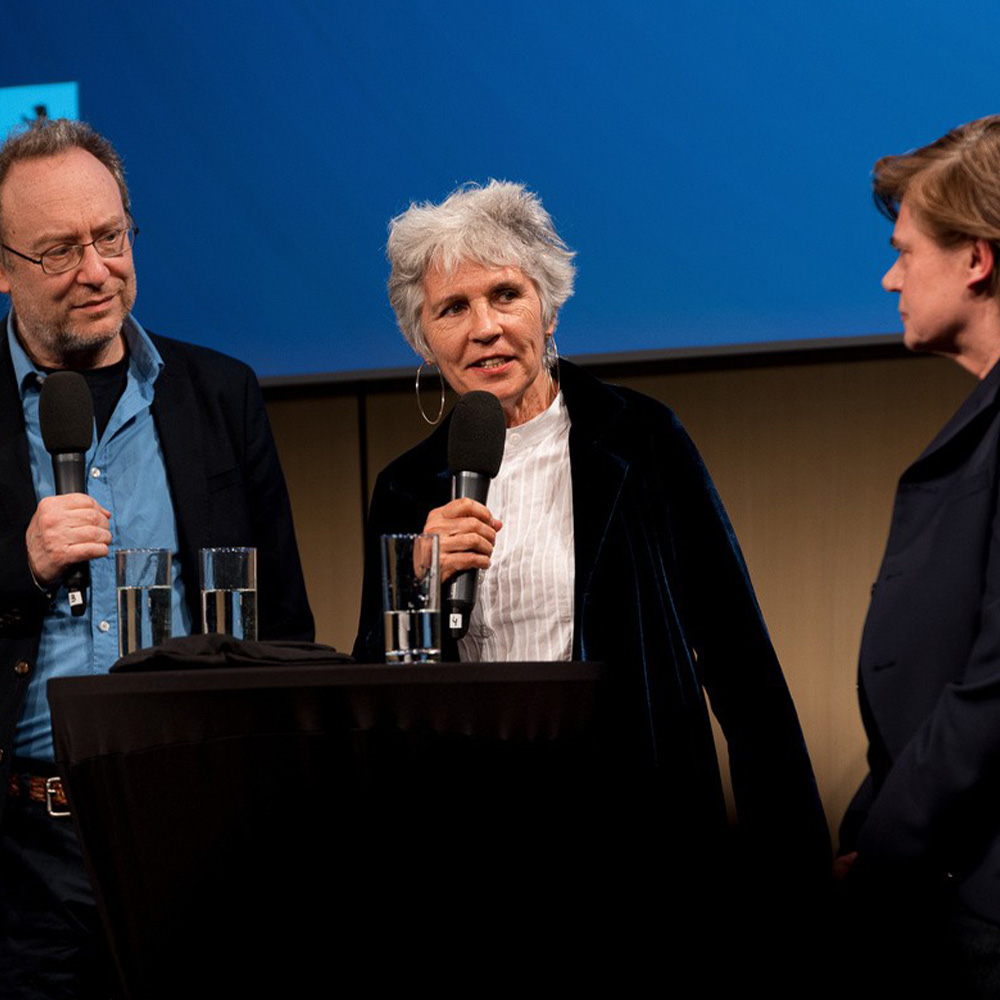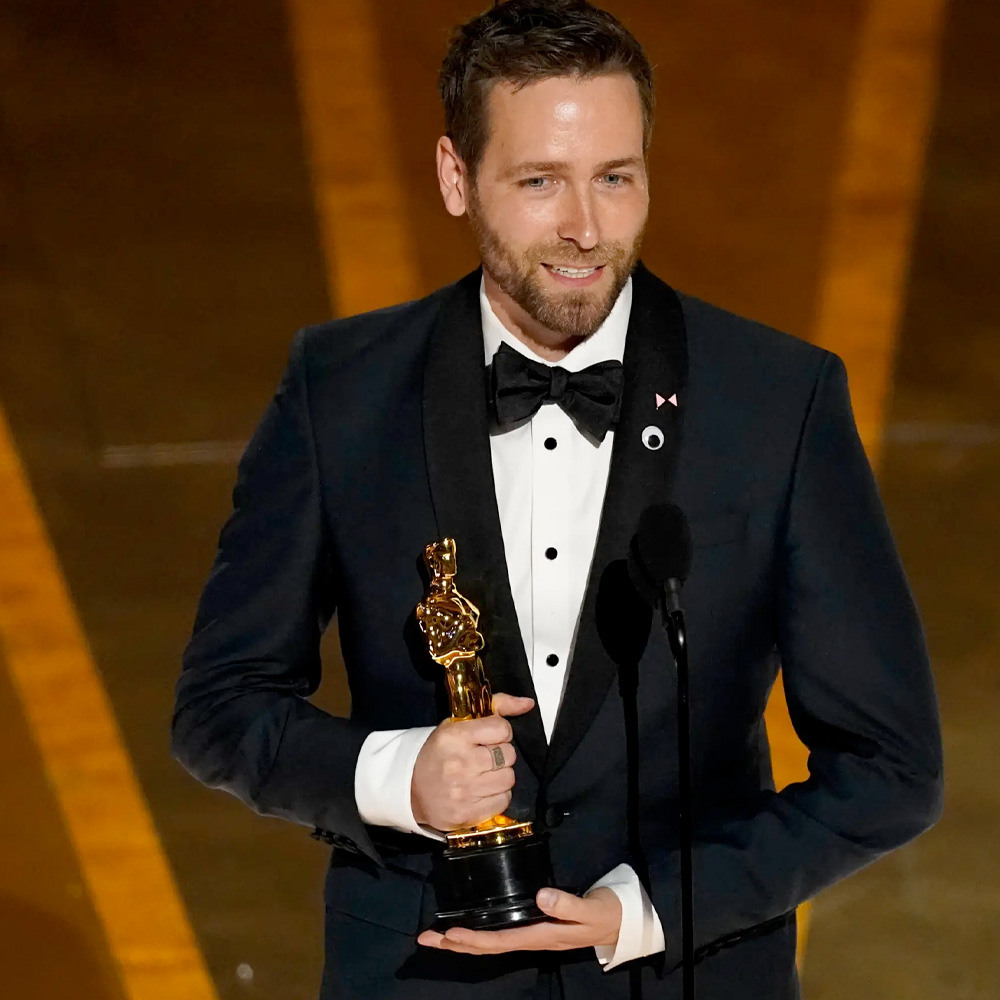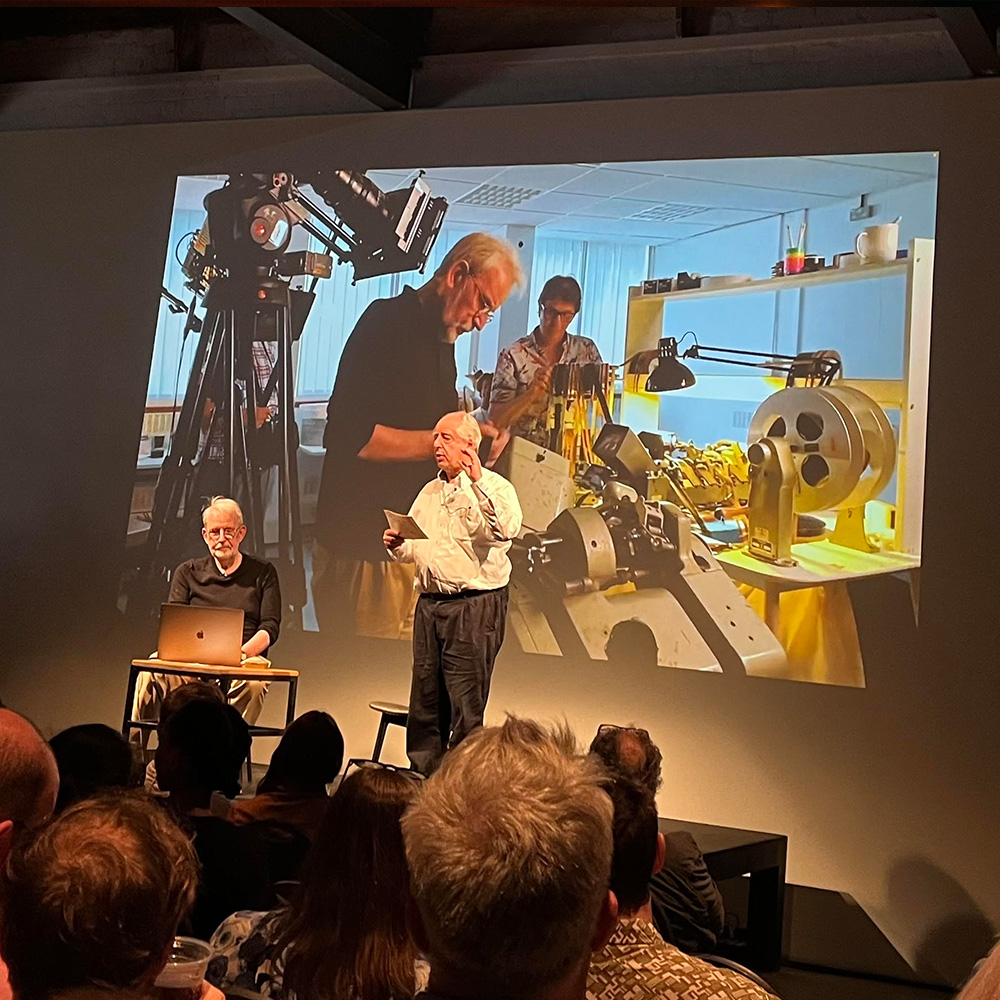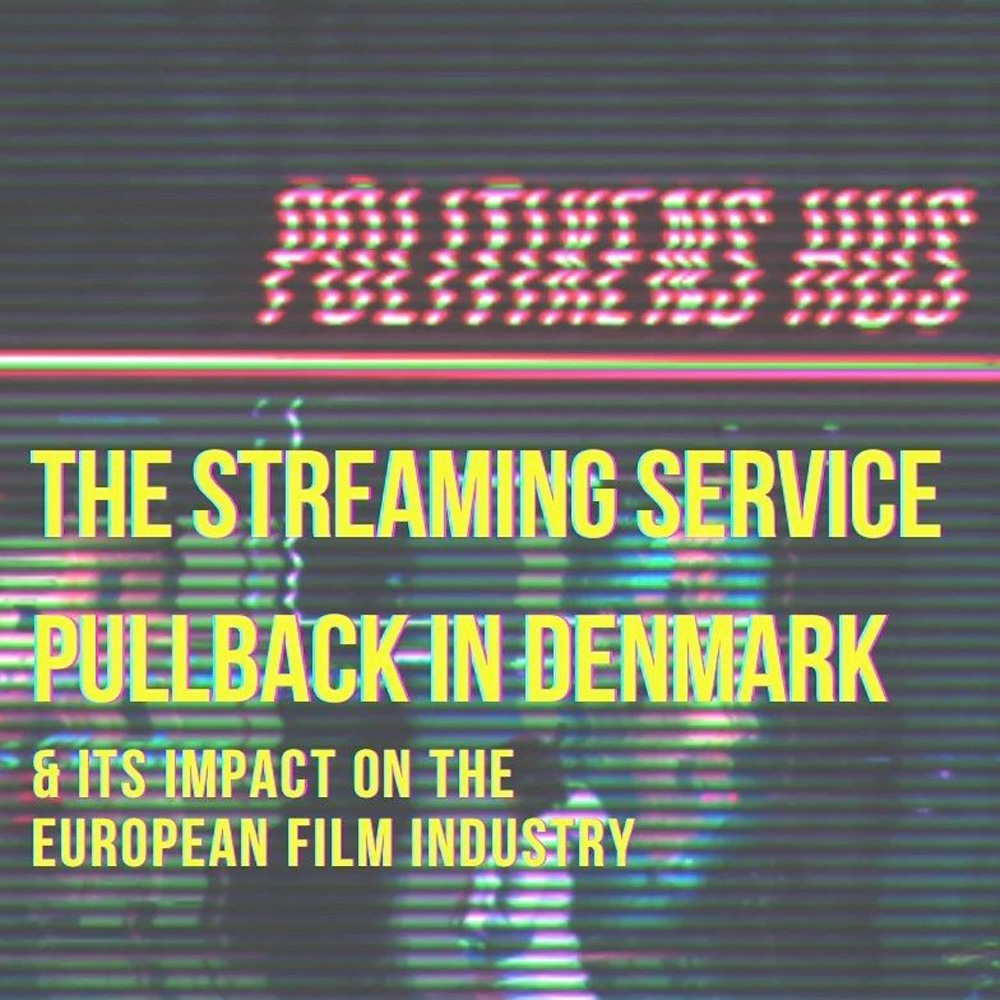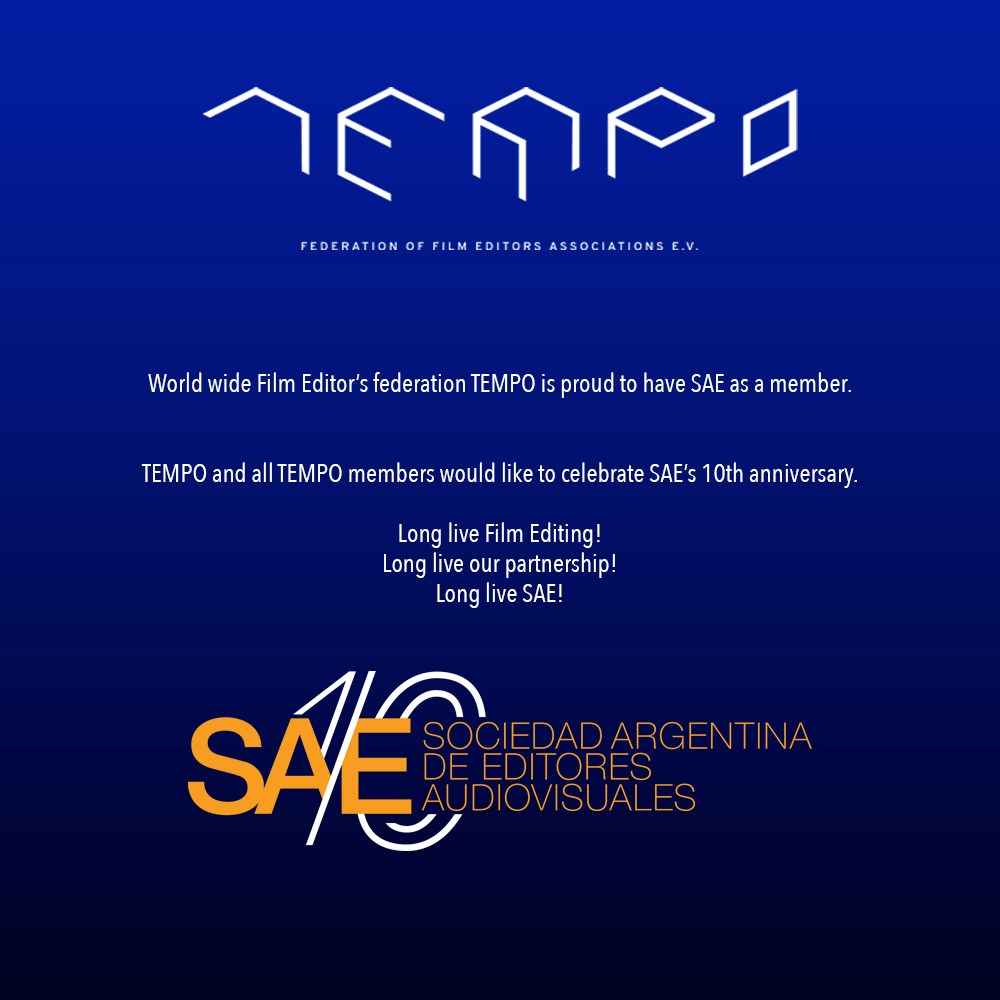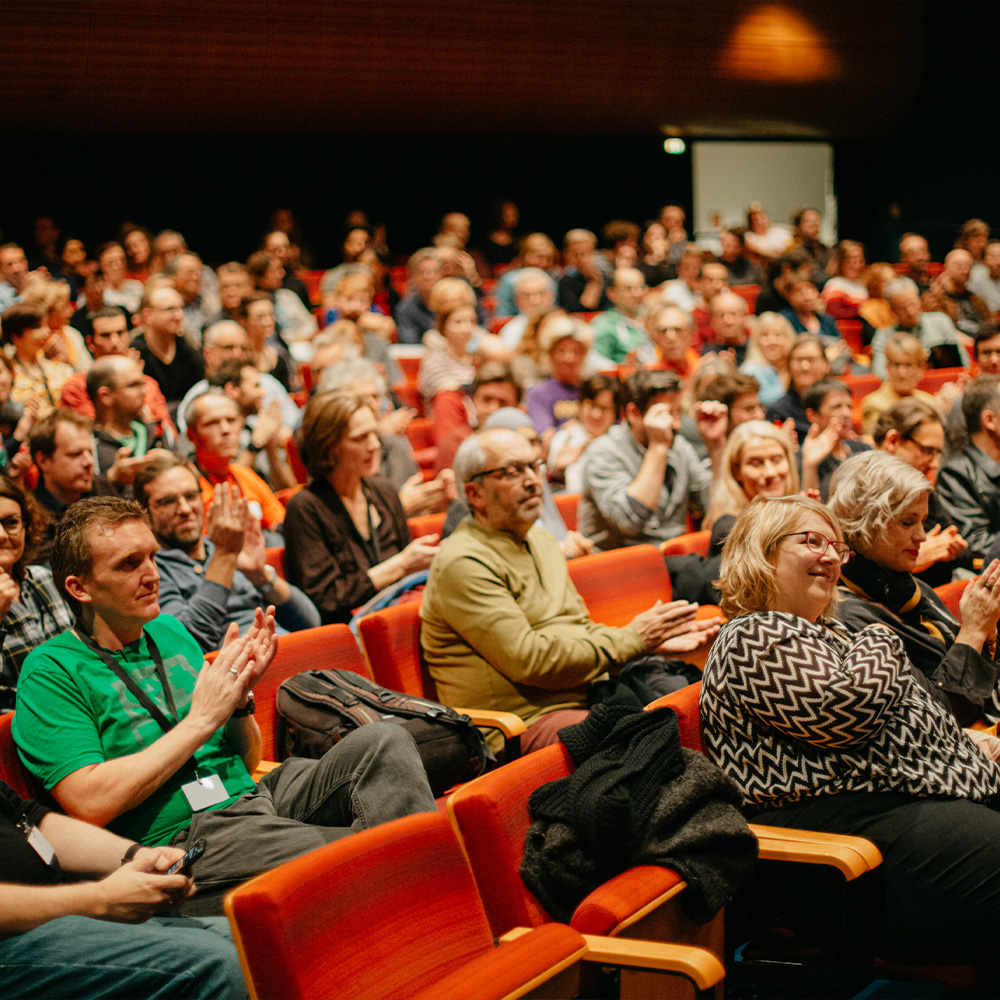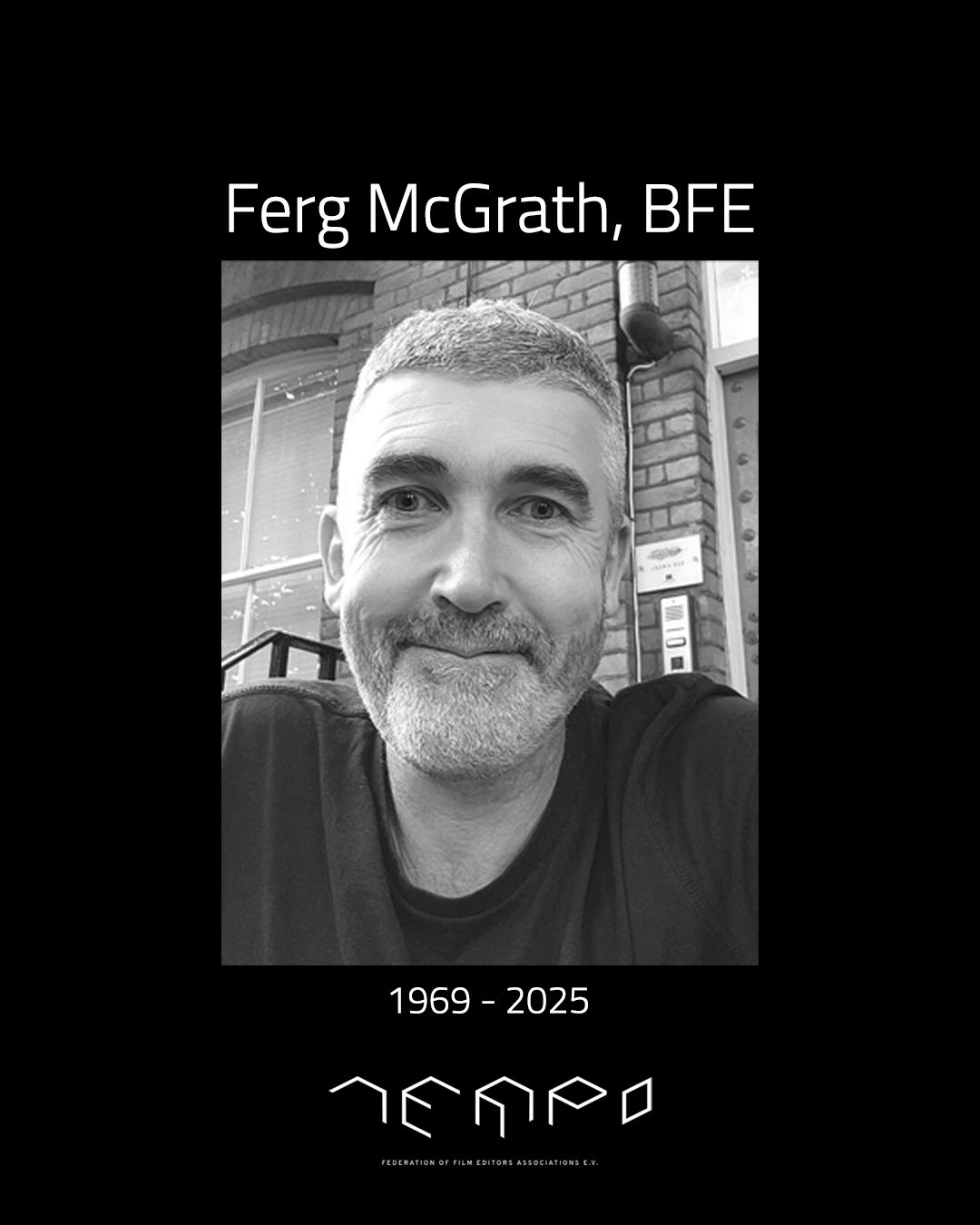
Summary of our TEMPO General Assembly
THE ELEPHANT IN THE ROOM
By Edgar Burcksen, ACE
My wife Jana and I watched an entertaining movie on Netflix lately titled You Do You. Reading
some of the opening credits the names looked all but English and we soon understood that we
were watching a Turkish movie. Since ditching cable and solely relying on the popular
streamers, most of the series and movies we’re watching are from countries like Turkey, Poland,
Italy, Spain, The Netherlands, Denmark, Brazil, Argentina, South Korea and many more. There
are excellent productions that cover a lot of genres from mysteries to horror, from period pieces
to romantic comedies, from drama to action.
Of course foreign content has always been available in theaters and TV but it was usually with
subtitles; the small theater chain Laemmle in LA even advertised with “Not Afraid of Subtitles”
basically emphasizing why foreign content had such a hard time getting a foothold in the US.
Subtitles are not the only way a foreign film or TV show can be made accessible to an American
audience: you can dub the voice material in English or just buy the rights of the production and
set up an English remake. Dubbing a production from the original language to the language of
the audience of a country is a practice for many major language territories; for instance in
Europe all film or TV content is dubbed in German, French, Italian, Spanish and Turkish while
smaller countries like The Netherlands, the Scandinavian territories, Hungary and Romania
usually get their foreign content subtitled. Dubbing foreign content is a thriving side business for
the acting talent and the post production industry. In the US dubbing was a practice used only
for foreign content aimed at children and later also for the growing market of animation
productions from abroad.
Of all the streamers especially Netflix has been very active in dubbing foreign content. They are
usually coproducing the movies and series most likely with the intent of putting it on their
streaming platform as a dubbed in English offering. To make it acceptable to an American
audience that is very picky about how well the English dialogue fits into the actors mouths they
must have set up a very versatile post production branch that takes care of all the work like
translating the foreign language so that it fits the lips of the actors and also keeps the dramatic
content of the story. AI may or probably already has played a significant role in how this is done.
But why is this foreign content so relevant to the writers and actors strikes? Well, all these
productions are produced out of the reach of organized labor here in the US. The credited
Turkish writer of You Do You, Ceylan Naz Baycan is certainly not a member of the WGA.The
film and TV business has always produced content in other countries than the US for exotic
locations but also because the wages for production professionals are usually just a fraction of
what similar creative and crafts people would cost here in the US. The studios would send their
US actors and heads of departments like directors, producers, cinematographers and
production designers to these far away locations and then send all the footage back to the US to
do the editing and finishing close to home. The screenwriting was in English and the language
the actors spoke was also English. All this traveling and the cost of maintaining an US crew in a
foreign country was very costly and so this was only done for major productions. The bulk of the
movies and TV series was written and produced in the US.
But the rise of the streamers created a demand for content that was way beyond what the
networks produced or coproduced. So the streamers and specifically Netflix cast their eyes on
foreign content and to make it acceptable for the American audiences they could not rely on
subtitles; hence they started dubbing foreign shows in English and after some start up problems
the dubbing of foreign shows is now done so well that if you wouldn’t know it they could very
well pass as American shows. In particular for Netflix this was an easy way to secure content
since they already produced or co-produced content in a lot of countries to supplement their
streaming choices over there. Netflix does not seem to really care that it does not receive any
content from the domestic producers because it has enough in its line-up from foreign countries
to program indefinitely. The proliferation is these foreign shows has made a considerable dent in
the demand for original screenplays especially in the romantic comedy genre once the staple of
the Hallmark Hall of Fame and Time/Life TV films. Now this genre is almost completely serviced
by Netflix shows produced or bought in foreign countries and then dubbed in English.
Members of the WGA and SAG-AFTRA have complained that they are underpaid for the work
they do and that there’s less of it. It’s simple economics: if Netflix or the other streamers can get
original content from abroad for less why would they pay top dollar to US writers and crew
members? Labor has always played catch-up with employers who come up with new schemes
to make their products for less money; the film business is no exception. At first they looked
abroad at lower wages and when language seemed to be a hurdle to produce quality content
they came up with the dubbing technique to exploit the advantages of producing and co-
producing abroad. The popularity of shows like Squid Game (Korean), Money Heist (Spanish)
or Borgen (Danish) and The Bridge (Swedish) are just a small grab of content that now is
available on the streamers.
It seems that the WGA and SAG-AFTRA strikes were a local fight between the writers and
actors and nobody seems to consider that this is a battle that can only be won when we look at
the global picture of the forces that are opposing each other. Screenplays can be written abroad
and acting can be dubbed or re-voiced, languages and cultural barriers do not seem to be
playing a significant role anymore in the creation of content for the studios or streamers. The
recognition foreign produced content gets lately (the 2020 Oscar for the South Korean Parasite,
2022 Oscar nominee Drive my Car from Japan and 2022 Prime Time Emmy nominee Squid
Game from South Korea) is a sure sign that we’re on the precipice of a breakthrough for
productions from foreign countries. This means that we need to look further than the borders of
the US for help in the fight for what we deem important to the survival of our art, craft, creative
power and economic survival. The IATSE, the union that covers most other workers in the
motion picture, TV and theater industry is making small but important steps in trying to organize
internationally according to a recent article in its magazine. But unions in other countries have to
adhere to different national labor laws and the IATSE like most other US unions organize locally,
so there’s a gargantuan task ahead to coordinate this.
For writers it means they have seriously think about the fact that motion pictures that are
produced in foreign countries and connect with an audience in the US without the cultural
differences being a big hurdle, that the screenplays from that country could easily be applied to
US productions sidestepping all the union rules that an American writer would benefit from. For
the actors they need to look at a show like You Do You and ask themselves, “could that have
been me playing that role? Could the whole cast have been played by American actors? Do the
suburbs of modern Istanbul look that different from American ones? If the drone shots of
Istanbul would be replaced by shots of Los Angeles or New York would it look like an US
production? If AI will be perfected to make the dubbing in English or any other foreign language
so easy what will that mean for my job opportunities here?”
So what to do? At ACE we realized about 10 years ago that we needed to reach out to our
colleagues in other countries to get a conversation going how to confront the issues created by
the expansion of production companies across national borders. We chose to open up our
membership to editors from other countries. ACE is a very well known and respected acronym
on the credits of motion pictures in theaters and TV by editors in other countries so they were
happy to get the attention of their colleagues in the US and the English speaking countries that
are active in the film and TV business. We’re not a union so we’re not a party in the on-going
struggle between the production companies and writers, actors and other production workers
even though we fully support their efforts, but we can coordinate how we’re viewed and
respected as major contributors to the creative forces that produce content for theaters and TV
everywhere in the world. It will help them at home and create some level of solidarity with their
colleagues in foreign countries. In the end the motion picture industry in theater and TV will
greatly benefit from this both economically and creatively.


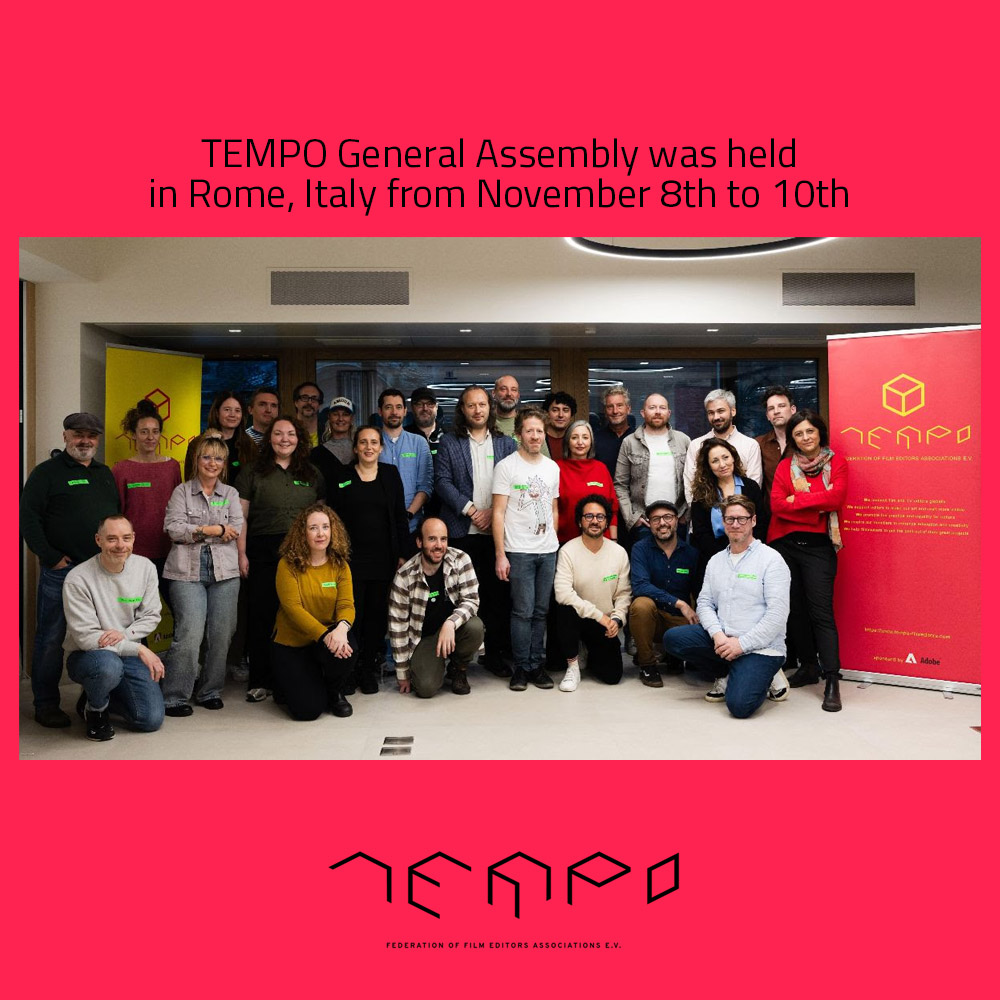

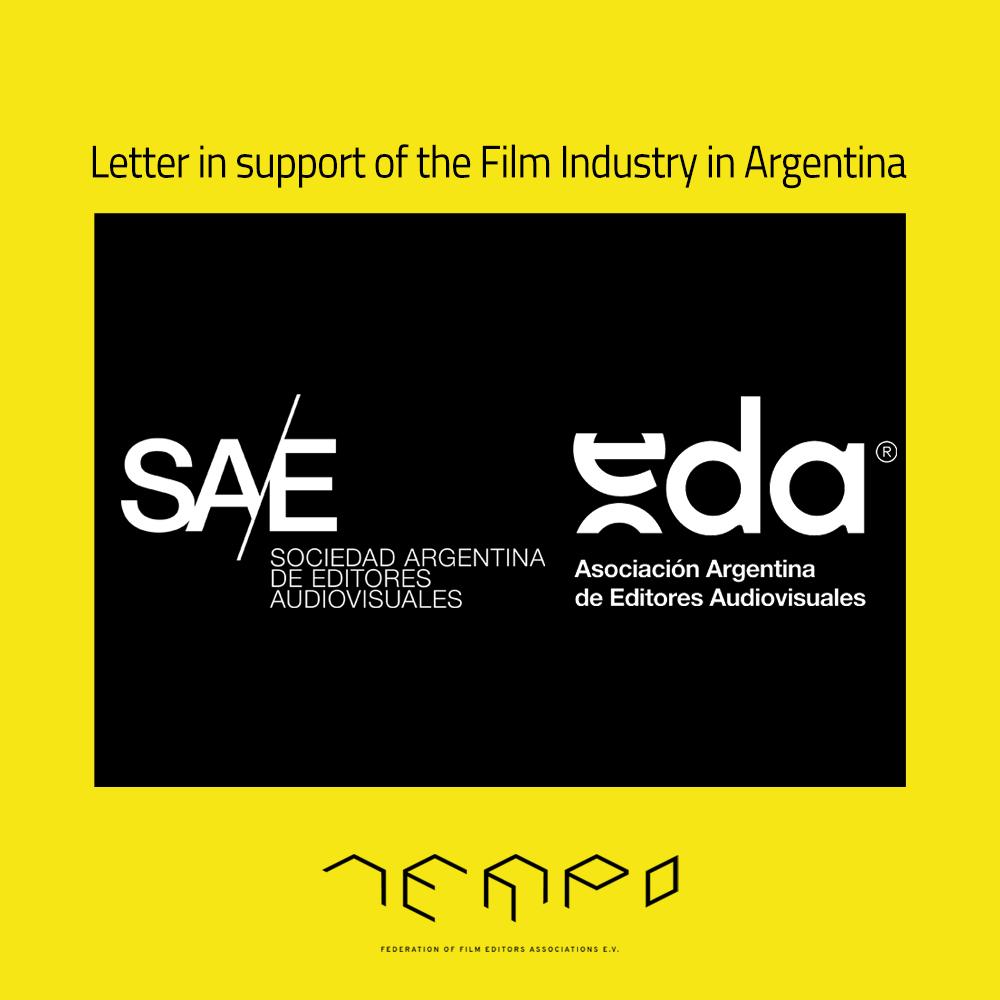
TEMPO stands in strong support of the film industry and workers in Argentina

